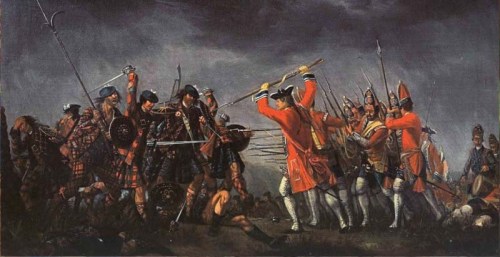Last time I wrote about statues erected years ago to what we could well call “dubious heroes”. A monarch who was the Number One Slaver in the world. A president who kept slaves even in a country where everybody knew “that all men are created equal”.
I certainly feel that, if there are largish numbers of people who do not want statues of a particular person, then so be it. Such men will then be gradually forgotten rather than commemorated by a statue and in this way be kept alive artificially.
Recently we have seen various groups of people smashing statues down, and even in one case throwing them into the harbour. But there does not necessarily have to be violence or hooliganism involved. Sometimes the local people can decide for themselves about a statue.
After James II was thrown out in the “Glorious Revolution” of 1688, various groups of people tried to put the Stuarts back on the throne of England. It all came to a head in 1745 when a Scottish army marched on London. By 1746, though, their dream was shattered. The Duke of Cumberland had fought and won the decisive Battle of Culloden. The Highland Scots, the vast majority of them Jacobites, and their army, were completely destroyed.

No mercy was shown. British soldiers killed all of the wounded Highlanders left on the battlefield. When Cumberland realised that a wounded man near him was a Jacobite, he told Major James Wolfe to kill him. The latter refused and a soldier completed the job.
In the Highlands, every single person thought to be a rebel was killed and over a hundred in total were hanged. Villages were burned. Farm animals were stolen. In other words, it was not very different from the arrival of the Wehrmacht or the SS in a Russian village in 1941. Here is the great man:

Not everybody in Georgian England thought the same way, though. In 1770 an equestrian statue of the Duke of Cumberland was erected in Cavendish Square in London to honour his exploits. Little regard had been paid, though, to the direction in which His Lordship should face. And sure enough, after a century of looking up a horse’s backside, the locals got fed up and in 1868 the statue had to be taken down.
One hundred and forty years later, a woman came up with a wonderful idea. She was a Korean artist called Mekyoung Shin. She constructed a life size statue of the Duke and put it back on the empty plinth. But her statue was made of soap and it gradually melted away, limb by limb:

To my mind, this idea of making statues of “dubious” people out of soap and then just letting them dissolve in the rain is an excellent one and should be encouraged widely.
We’ve already looked at Lord Nelson, and he would be an ideal candidate for a soap statue. And he was a sailor, so he must have liked water. Here he is:

But what about people who have reformed? Is it OK to erect statues to them?
Nowadays, Benjamin Zephaniah is a famous poet:

When he was a teenage boy, Benjamin Zephaniah, by his own admittance, was a member of a gang in Birmingham. He was a thief, he was a pickpocket, he was a burglar, he was a liar, he stole cars, he was violent and he took part in an attack on a gay man. He went to Borstal and to prison. But then, through poetry, he turned his life round. He now has 16 honorary degrees, he is Professor of Poetry at Brunel University and he narrowly lost the ballot for Professor of Poetry at Oxford.
Should we have statues to those who have reformed like Benjamin? Of course we should, and in his case, it should be placed outside whichever prison where he served half of his sentence, in such a way that it looks outwards to his future.
And finally one or two other rules. Every single statue should be retired after 200 years and auctioned off. Every city’s statues should be subject to a regular review to make sure their ethnic origin is not 100% white or male, and that there are a fair number of other categories represented.
And no famous sportsmen or women to feature. If statues of such people are needed, the fans themselves should pay. Or in the case of footballers, the football clubs they play for.
The only sportsperson to get a statue will have overcome great handicaps to become successful:
Next time, we will look at the people who have never had a statue erected to them.
 picture of soap statue borrowed from urben 75
picture of soap statue borrowed from urben 75



